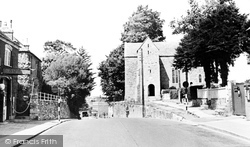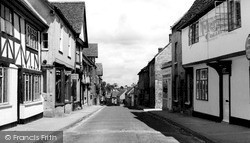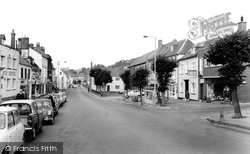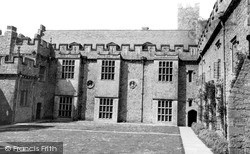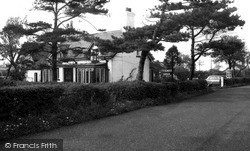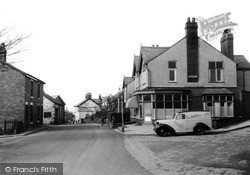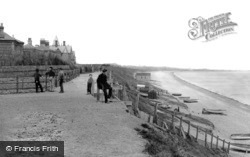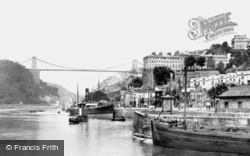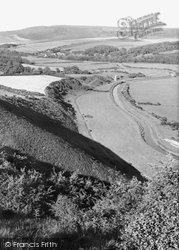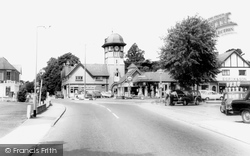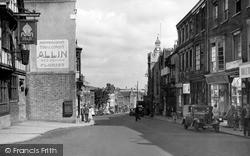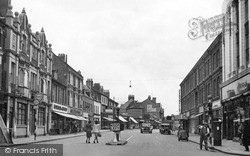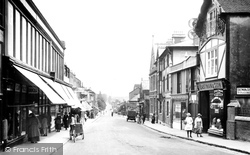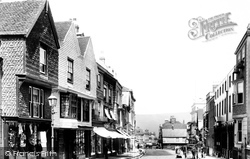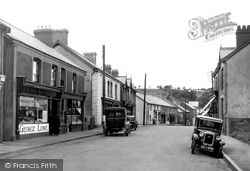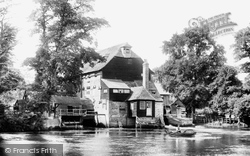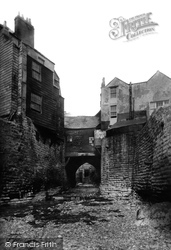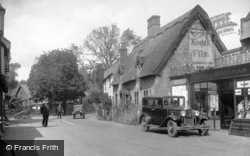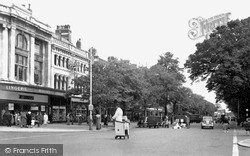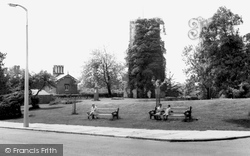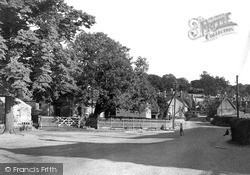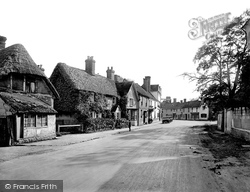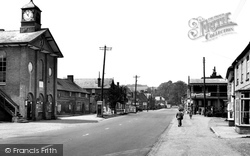Places
36 places found.
Those places high-lighted have photos. All locations may have maps, books and memories.
- Bangor, County Down
- Newcastle, County Down
- Greyabbey, County Down
- Donaghadee, County Down
- Downpatrick, County Down
- Portaferry, County Down
- Dromore, County Down
- Downings, Republic of Ireland
- Hillsborough, County Down
- Killyleagh, County Down
- Ardglass, County Down
- Rostrevor, County Down
- Dundrum, County Down
- Newtownards, County Down
- Warrenpoint, County Down
- Ballygowan, County Down
- Ballywalter, County Down
- Ballyward, County Down
- Bishops Court, County Down
- Boardmills, County Down
- Culcavy, County Down
- Katesbridge, County Down
- Killough, County Down
- Millisle, County Down
- Portavogie, County Down
- Saul, County Down
- Seaforde, County Down
- The Diamond, County Down
- Audleystown, County Down
- Kearney, County Down
- Annaclone, County Down
- Ballyhalbert, County Down
- Ballymartin, County Down
- Clare, County Down
- Conlig, County Down
- Dollingstown, County Down
Photos
1,089 photos found. Showing results 1,441 to 1,089.
Maps
459 maps found.
Books
47 books found. Showing results 1,729 to 1,752.
Memories
8,148 memories found. Showing results 721 to 730.
My Memories Of Mossband
I lived with my parents at 28 The Green, Mossband from around 1942 (when I was one year old) until 1949, when my Father, Edward Lovie (a WD constable) died from throat cancer. My memories are all fairly traumatic and ...Read more
A memory of Mossband Ho in 1940 by
Southdown Cottages
My paternal grandmother`s sister, Aunt Lil (Lily) and husband Uncle Perc (Percy) Noakes lived down the narrow pathway in the middle of the Southdown Cottages. As a child we used to visit them and I remember they had a cottage ...Read more
A memory of Willingdon by
Triggered A Few More Memories
Waterloo in the 1940s to 1950s My early memories are of Waterloo where I used to live at Winchester Avenue until 1958. My father died there in 1989. On College Road there were air raid shelters which me and ...Read more
A memory of Waterloo by
The Taplin Family
Hello, my Great-Grandmother worked in Blockley silk mill. Her name was Emma Taplin, then she went on to marry a West. Her family lived in Paxford and her father worked on the Blockley railway. I only live down the road from ...Read more
A memory of Blockley in 1880 by
Born In Fairford 1939 Left 1957 I Still Call It Home Prim Clements
My family moved to Fairford with Rev Gibbs? 1937, I always lived at Victory Villas, went to infants school, Farmors School and Cirencester Grammar School, worked at Busbys garage. ...Read more
A memory of Fairford in 1957 by
1954 And 1955
I was stationed here for the year above. Last time I visited was maybe 1972 or so. The headquarters company there had been torn down and nothing left but the foundation. The English folks were VERY gracious to the American ...Read more
A memory of Colliers End in 1954 by
Cockey Joe
Does anyone remember when the prefabs were being torn-down, Cockey Joe was working for the demolition firm, a couple of hours "here and there" I think, anyways I remember seeing him up on the gable end of one, swinging a mash, ...Read more
A memory of Fishcross by
A Wartime Child
I was born in 1935 at 25 Cambridge Road, maiden name Lee. There were six of us, parents, 2 older sisters, Beryl and Gwen, and grandmother. I remember many of the shops from the late 30's to the early 50's when we moved to ...Read more
A memory of North Harrow in 1930 by
The Old Mill
I remember The Old Mill from 1975, it seems a long time to me. My then husband and I were assistant managers for what was then Schooner Inns Steak Houses. We worked there about 8 months just after we were married, our living quarters ...Read more
A memory of Bexley in 1975 by
The Roxy
Saturday mornings at The Roxy, Barkerend Road, Bradford were a magical event in the lives of 8 year olds plus in the 1950's. The film breaking down which it did every week to the sounds of a hundred kids stamping and yelling and ...Read more
A memory of Bradford in 1953 by
Captions
2,258 captions found. Showing results 1,729 to 1,752.
Wareham St Martin's (right), standing on King Alfred's Town Walls, is Dorset's earliest complete church. Anglo-Saxon arcading was replaced by Norman arches in the 12th century.
The entire heart of the town has been moved over the hill to a new site, so that the little that remains of the old High Street is now totally run down.
Like many other Cotswold towns, Winchcombe's fortunes rested on the wool trade. But in Charles II's time, fortunes were also made locally by growing tobacco.
Opposite, the Port Bredy Guest House takes its name from that used for the town in the Wessex novels of Thomas Hardy. Victoria Grove branches off between the trees (right).
The young man's body was brought back to St Donat's, where it lay in state in the great gallery, looked down upon by the portraits of his equally dead ancestors.
Rawcliffe Hall was nearby, the home of the outrageous Squire Rawcliffe who burned down a windmill one bonfire night.
Weighing 3 cwt it was so heavy that it had to be brought down to ground level, as it was causing the wall to bulge. Near Fernbeck Cottages were found querns and bronze implements.
The timber building with steps leading down from the cliff (right) is the Pakefield lifeboat shed, which was washed away by 1905.
Today, the increase in size of vessels has led to a new port being created down-river at Avonmouth. Visiting ships now miss this magnificent suspension bridge.
High and Over, or Hindover, is a vantage point on the South Downs, overlooking the Cuckmere river valley.
Prior to the Second World War the house was pulled down and replaced with modern houses. An electric clock was installed in 1945.
This street, which is on the periphery of the main shopping area of Stourbridge, has now become rather run down - a pity, since there are one or two fine houses here dating from the 1700s,
This view down Silver Street, widened here at the junction with Gold Street in the 1930s, looks towards Dalkieth Place.
Further down, St Joseph's Catholic Church arrived in 1935: not a masterpice, it has to be admitted, and in a pallid Gothic style.
Lewes, the medieval guardian of the gap through the South Downs cut by the River Ouse, occupies a fine hilltop site which produces a superb townscape.
Further down on the left, and beyond the two cars, a grocer sells Lyon's tea and Wills Star cigarettes.
Mills were frequently rebuilt, and this mill replaces one that was burnt down in the 17th century.
Bridge Street was known as Beaufront Street until the Middle Ages, and the land still sloped down to the sea until these sea walls were built after the Civil War.
Set in the heart of Broadland, it has been called 'little Venice', and its soft green lawns spread down to the water's edge.
The wearing of white coats was introduced in some towns during the Second World War; it gave the policeman at least a sporting chance of not being run down during the blackout.
The tower was taken down shortly after this photo was taken. The site of the church is now marked out in stones and there is a memorial table. The graveyard has become a pleasant open space.
Further up the road is the Victorian parish church, which replaced one of 1791 which itself replaced the medieval one, apparently burned down in the Civil War.
Our progress down-river reaches Dorchester. It was a Roman town and the seat of an Anglo-Saxon bishopric, and is now dominated by its great late 11th-century Abbey church.
19th-century race days on Danebury Downs brought many keen race-goers to Stockbridge, including Edward VII and Lily Langtry. Shops and eating houses would be bustling.
Places (198)
Photos (1089)
Memories (8148)
Books (47)
Maps (459)


